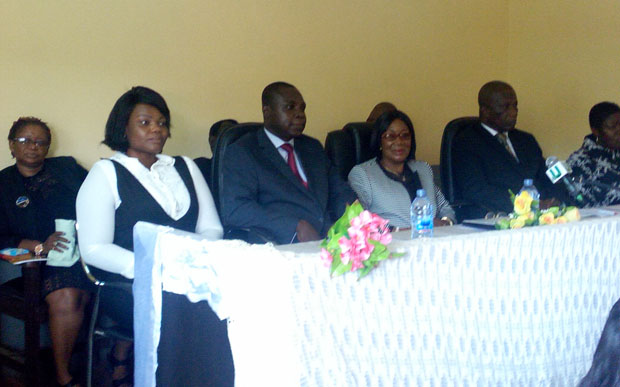Some judges at the programme
The Judicial Service of Ghana has stressed the need for the general public to embrace the Court Connected Alternative Dispute Resolution (ADR) to help decongest the country’s courts.
This, according to the Judicial Service, would also enable the judges to have more time in handling cases which were not amenable to ADR and make the Judiciary more efficient.
ADR refers to a range of procedures that served as alternatives to traditional litigation for the resolution of disputes which involved the assistance of a neutral or impartial third party. It aimed at making quality justice real and accessible to all, especially to the poor and vulnerable.
The Judicial Service has therefore adopted ADR to ensure that quality justice is not compromised and has subsequently urged all judges to resort to ADR at every opportunity.
Her Ladyship Justice Irene Charity Larbi, a judge with oversight responsibility for the national ADR programme, stated this at the opening of this year’s ADR week at the Takoradi District Court yesterday.
The ADR week celebration is used to create mass public awareness in order to educate the citizenry on the use of ADR while the stakeholders, including judges, court officials and lawyers, are sensitized.
It was under the theme: “Application of ADR by the Courts; A Shared Responsibility for Quality Justice”.
So far, a total of 590 mediators have been trained and assigned to the about 107 courts connected to the ADR programmes.
Between January and December 2017, a total of 3,486 cases were mediated out of which 1,571, representing 45 per cent, were settled.
The initiative, according to her, had helped in reducing the backlog of cases in the courts substantially due to the mass mediation exercise.
According to the judge, Court Connected ADR had come to stay and urged parties in matters to embrace it because it saves time, cost and decongests the courts.
“It is time we allowed justice through ADR instead of looking at jurisdictions. ADR empowers the individual and lawyers. Clients are likely to be more satisfied with lawyers who help them select and implement appropriate and cost-effective options for resolving disputes,” she stated.
“It is about time Ghanaians deepened their commitment to the cause of justice by resorting to interventions that make access to justice more meaningful than the adversarial system that many are used to”, she advised.
She explained that rules of the courts prescribed amicable resolution of cases before the courts. She added that the Judicial Service had since 2005 created space and the necessary environment to serve the litigating public with all the benefits of ADR.
From Emmanuel Opoku, Takoradi


